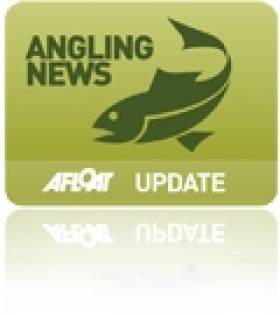Displaying items by tag: River Dee
#Angling - At a sitting of Ardee District Court on Monday 12 March, Irish Water pleaded guilty to the discharge of deleterious matter to the River Dee on 15 May 2017.
The offence related to a poor quality discharge from a wastewater treatment plant at Ardee, Co Louth.
The River Dee rises near Bailieboro in Co Cavan and flows through Co Meath and Co Louth, where it enters the Irish Sea at the village of Annagassan.
Michaela Kirrane, senior fisheries environmental officer with Inland Fisheries Ireland (IFI), told Judge Coughlan that during a routine inspection of the river on the 25 May last year, it was noted that the river appeared to be in a poor condition downstream of the discharge point from Ardee Wastewater Treatment Plant.
A series of water samples were taken and analysis confirmed that the discharge from the treatment plant was having a deleterious impact on the quality of the River Dee, an important brown trout fishery.
Irish Water co-operated fully with IFI’s investigation and remediation works were carried out. Upgrade works are currently underway to increase capacity at the wastewater treatment plant.
Irish Water was fined €4,500 with costs and expenses awarded to IFI amounting to €4,381.61.
Minister Opens White River Fishery Enhancement Project
#ANGLING - Minister of State Fergus O'Dowd was on hand at the opening of the White River enhancement project in Dunleer, Co Louth earlier this month.
The €32,000 project was funded by the Louth Leader Partnership, with works were carried out by the Dee and Glyde Fishing Development Association and the Dundalk district staff of Inland Fisheries Ireland.
The White River, a tributary of the River Dee, is considered hugely important as a spawning and nursery area, and it has already seen significant improvements in the levels of juvenile salmon and trout.
Instream enhancement works began in 2006, supervised by Inland Fisheries Ireland, and included the introduction of new gravel, weirs, deflectors and spawning beds which have helped the White River to achieve its potential in terms of fish numbers.
Speaking at the launch, Inland Fisheries Ireland CEO Dr Ciaran Byrne said: "The work that I have seen on the river is fantastic and a credit to all involved."
IFI assistant inspector in Dundalk, Ronan O’Brien, said project was based on restoring the natural features of the river.
He added that the programme was a great recognition of the work carried out by the Dee and Glyde Fishing Association, and that it had strengthened links with local business and development groups and could be used as a template for other projects in the area.

























































